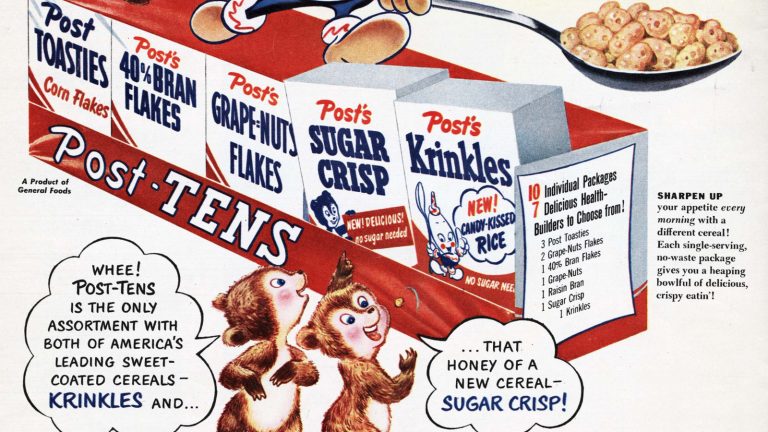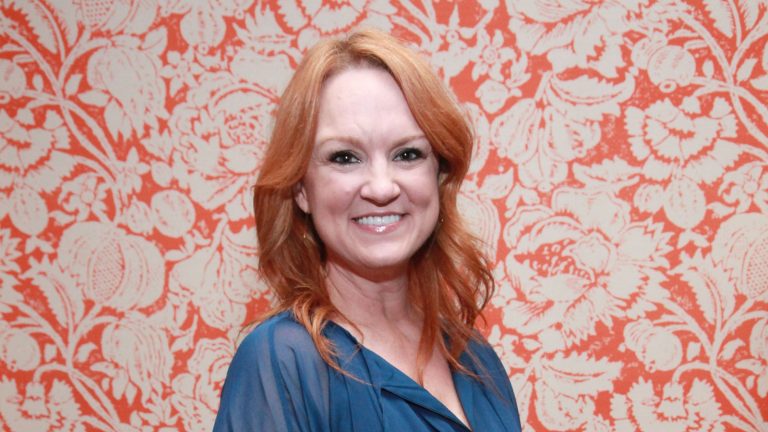There were a few twists when Crispy Cones founders Jeremy and Kaitlyn Carlson stepped onto the “Shark Tank” stage. The duo’s pitch included their love story and their signature Crispy Cones, the flaky vessel of our dreams. They’re filled with soft-serve ice cream and topped with an assortment of yumminess. Jeremy got the idea for Crispy Cones from an Eastern European street food called chimney cakes. This Transylvanian pastry comes in many variations, and chimney cakes are also a popular wedding treat. Think churro/donut but not fried. It’s a yeasty, sweet dough, skewered and roasted over coals or an open flame, and because it’s covered in sugar and cinnamon, the whole thing caramelizes (swoon). The crispy, long dough curl is coiled, either filled or left hollow, and coated with Nutella or white chocolate.
Jeremy spent two years as a missionary in the Czech Republic where he obsessed over trdelník, the local name for chimney cakes. When he came home, he went to college and spent the rest of his time in his aunt’s kitchen, turning his obsession into recipe development. His version of trdelník, inspired him to go back to the Czech Republic to obsess even more. When Jeremy came home (again), he introduced Crispy Cones from a tent pitched in a gravel clearing. Everyone went nuts.
What happened to Crispy Cones on Shark Tank?
All four sharks really got into the ice cream samples. While Jeremy and Kaitlyn served a wide variety of ice cream flavors and accoutrements, they also served warm cones, by themselves, for the sharks to pull apart and enjoy. They unraveled them; Mark Cuban stretched one out. Jeremy told them how quickly Crispy Cones moved from the tent to a custom truck, and then to shops. Here’s what Crispy Cones had going for them: In his first year, in the tent, Jeremy earned $21,000 in four months. The next year he acquired a custom-built trailer, and his sales grew to $70,000 in five months. During Covid he grossed $80,000. The first brick-and-mortar shop came in 2021, in their hometown of Logan, Utah. Then another, the next year in Rexburg, Idaho.
The panel went all in with the questions — Why increase expenses? Why not more trucks? No one thought franchising was a good idea except Barbara Corcoran, the franchise queen (Hello, Cousins Maine Lobster). During their “Shark Tank” appearance, Jeremy and Kaitlyn sought a $200,000 investment for 10% equity in Crispy Cones. Cuban and Lori Greiner liked the product but opted out. Both of them were concerned about their rapid scalability and zero experience in franchising. Robert Herjavec and Kevin O’Leary did the same, but Corcoran was hooked. She offered $250,000 in exchange for 20% equity. When Jeremy waffled a bit, she almost backed out entirely, but a deal was struck in the end.
Crispy Cones After Shark Tank
“Shark Tank” helped shoot Crispy Cones into orbit. By early 2024, the company had opened five stores in the U.S. The first five locations included Chandler and Tempe, Arizona; Rexburg, Idaho; along with two more in Logan and Provo, Utah. Next they opened new Crispy Cone locations in Gilbert, Arizona, Orlando, Florida, and Saint George, Utah.
Jeremy told Entrepreneur that Corcoran’s expertise was the best part of the deal and helped them sell 54 franchises in 2024. The exposure led to even more franchise opportunities, prompting the Carlsons to rethink their path. Following Corcoran’s encouragement to keep it simple and strategic meant distilling all the magical parts of the business — ingredients, ideas, and processes — into their simplest but most concentrated form. That made repeating the process (and success) faster, a big component of any successful franchise operation.
Is Crispy Cones still in business?
Crispy Cones is still in business and thriving. The Carlsons appeared on “Shark Tank” again in February 2024 to report that their lifetime sales have exceeded $2 million. During their second appearance, the duo talked about their rapid expansion and introduced a new franchise model to the sharks. In addition to their full-out ice cream shops, Crispy Cones is now offering a smaller model without indoor seating to franchisees. That makes it just the thing for shopping complexes and malls. They also introduced self-service kiosks and reported that their second appearance on “Shark Tank” led to even more applications from potential franchisees.
One aspect of their business that’s stayed with them from the beginning is a nifty marketing campaign that highlights a rotating flavor. The flavor is limited and often seasonal. Think carrot cake to celebrate Easter, which sounds really delicious piled up in that cone, with all that cinnamon and sugar.
What’s next for Crispy Cones?
As Crispy Cones looks to the future, it’s clear the Carlsons are hoping to bring one of their stores to your neighborhood soon. In the years since their initial appearance on “Shark Tank” the brand has expanded to 14 states with locations either already open or in the works. On April 11, two locations opened in Allison Park, Pennsylvania and Wilmington, North Carolina.
The company now uses a team of marketers to examine potential regions where a group of Crispy Cones could potentially thrive. Then they scout franchisees, pairing entrepreneurs with those flaky, yummy cones. The brand seems to like partnering with experienced fast-casual restaurant concept operators. One of its largest deals includes eight stores, from Tennessee to North Georgia.
Crispy Cones appears ready to hit its stride and will likely stay on this path geared towards expansion, not just in locations, but also in product. As they continue to release special seasonal flavors, Crispy Cones is also making sure there are options for people with dietary restrictions. Crispy Cones are dairy-free and vegan, and they offer an array of non-dairy fillings and toppings.





